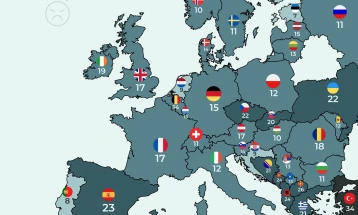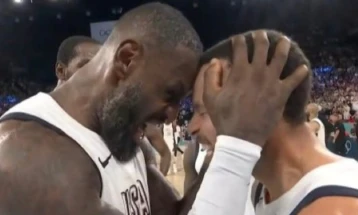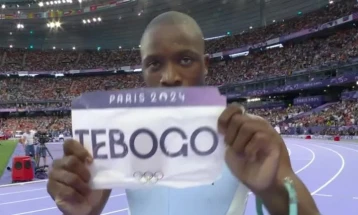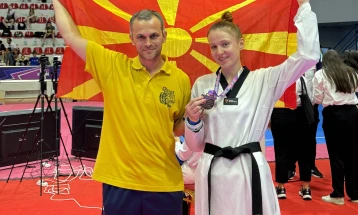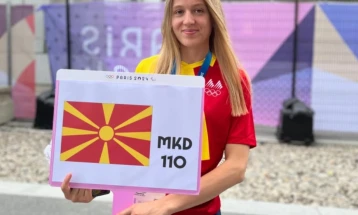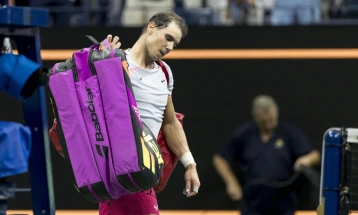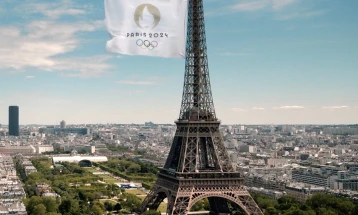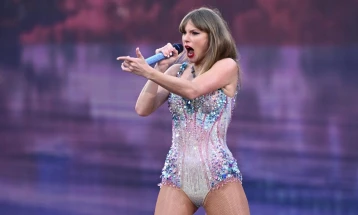Lyles and Mihambo infections confirm Covid is still all around
- The coronavirus remains a threat as American sprinter Noah Lyles and German long jumper Malaika Mihambo were the latest athletes to find out on Thursday at the Paris Olympics.
- Post By Magdalena Reed
- 12:35, 9 August, 2024
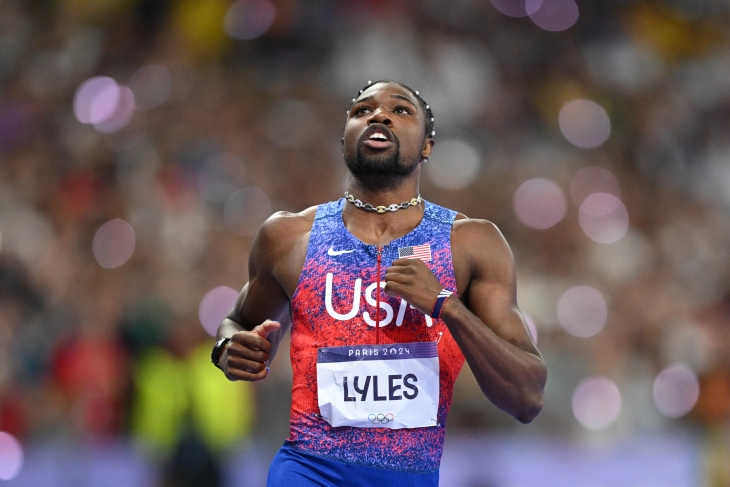
Paris, 9 August 2024 (dpa/MIA) — The coronavirus remains a threat as American sprinter Noah Lyles and German long jumper Malaika Mihambo were the latest athletes to find out on Thursday at the Paris Olympics.
Lyles missed a sprint double with 200m bronze after 100m gold and then said he had tested positive on Tuesday.
Mihambo was not at her very best after a recent coronavirus infection and had to settle for silver as she missed becoming the first woman to win the Olympic long jump back to back.
The illness which forced the Tokyo 2020 Games to be postponed by one year is still affecting sports in Paris and at other events.
Briton Thomas Pidcock was among several riders who pulled out of the recent Tour de France after contracting the SARS-CoV-2 virus but recovered from his acute infection in time to win mountain bike gold in Paris.
Mihambo was among those who contracted it at the European championships in June, and Australian swimmers were among those affected in Paris.
There are no more Covid protocols to prohibit athletes from competing after positive tests and spreading the virus to others.
Lyles wore a face mask in the call room ahead of Thursday's final which fuelled speculation, and he said later that "I do have Covid.
"I tested positive around 5am on Tuesday morning. I woke up in the middle of the night feeling real chills, aching, sore throat, and those were a lot of the symptoms I’ve had right before getting Covid.
"We tested it, came back positive and we quickly quarantined in a hotel nearby the (Olympic) Village. Tried to get me on as much medication as we legally could to make sure my body could keep the momentum going.
"I still wanted to run, it was still possible, we just stayed away from everybody. I knew that if I wanted to come out here and win, I had to give everything I have from the get-go. I didn’t have any time to save energy. That was the strategy.
"It definitely affected my performance. I’ve had to take a lot of breaks. I was coughing through the night. I’m more proud of myself than anything, coming out here to get a bronze with Covid.”
Lyles left it open whether he would run in Friday's 4x100m relay final.
Mihambo was in a wheelchair in the Stade de France post-competition before being able to attend the medallists' news conference where she said "I am feeling better" and "I am very proud of myself."
"Since corona has hit my lungs I need more time to recover. It was the same after the competition as two years ago in Munich," she said, referring to the 2022 European championships she also competed in after an infection.
Mihambo's coach Ulli Knapp said that she won silver and did not lose gold.
According to Harvard Health, "the lingering symptoms of fatigue, pain, and difficulty thinking that can last for several years after COVID — called long COVID or post-acute COVID syndrome — may well be caused by ongoing low-grade brain inflammation caused by the virus."
"Even if people escape brain damage during the initial attack of COVID-19, they remain at considerably greater risk of various brain conditions, including strokes, depression, anxiety, and psychosis for the next several years," says Anthony L. Komaroff, MD, Editor in Chief of the Harvard Health Letter.
According to the Washington Post, 84 countries in the Americas and parts of Asia and Europe are currently facing a sharp rise in COVID-19 infections.
The latest wave is driven in large part by the highly contagious and immune-evasive KP.3 and KP.3.1.1 variants. As of July 20, KP.3 made up an estimated 33% of cases in the United States, according to CDC data. KP.3.1.1, has also rapidly become one of the most dominant variants and makes up nearly 18% of cases.
